Book Excerpt: Super Brain by Deepak Chopra, MD and Rudolph E. Tanzi, PhD
336 pages; Harmony
Available at Amazon.com | Barnes & Noble | Indie Bound
A Golden Age for the Brain
What do we really know about the human brain? In the 1970s and 1980s, when the authors gained their training, the honest answer was "very little." There was a saying circulating back then: Studying the brain was like putting a stethoscope on the outside of the Astrodome to learn the rules of football.
Your brain contains roughly 100 billion nerve cells forming anywhere from a trillion to perhaps even a quadrillion connections called synapses. These connections are in constant, dynamic state of remodeling in response to the world around you. As a marvel of nature, this one is miniscule and yet stupendous.
Everyone stand in awe of the brain, which was once dubbed "the three-pound universe." And rightly so. Your brain not only interprets the world, it creates it. Everything you see, hear, touch, taste, and smell would have none of theose qualities without the brain. Whatever you experience today—your morning coffee, the love you fee for your family, a brilliant idea at work—has been specifically customized solely for you.
Immediately we confront a crucial issue. If your world is unique and customized for you and you alone, who is behind such remarkable creativity, you or the brain itself? If the answer is you, then the door to greater creativity is flung open. If the answer is your brain, then there may be drastic physical limitations on what you are able to achieve. Maybe your genes are holding you back, or toxic memories, or low selfesteem. Maybe you fall short because of limited expectations that have contracted your awareness, even though you don't see it happening.
The facts of the case could easily tell both stories, of unlimited potential or physical limitation. Compared with the past, today science is amassing new facts with astonishing speed. We have entered a golden age of brain research. New breakthroughs emerge every month, but in the midst of such exciting advances, what about the individual, the person who depends upon the brain for everything? Is this a golden age for your brain?
We detect an enormous gap between brilliant research and everyday reality. Another medical school saying from the past comes to mind: Each person typically uses only 10 percent of their brain. Speaking literally, that's not true. In a healthy adult, the brain’s neural networks operate at full capacity all the time. Even the most sophisticated brain scans available would show no detectable difference between Shakespeare writing a soliloquy from Hamlet and an aspiring poet writing his first sonnet. But the physical brain is not nearly the whole story.
To create a golden age for your brain, you need to use the gift nature has given you in a new way. It's not the number of neurons or some magic inside your gray matter that makes life more vital, inspiring, and successful. Genes play their part, but your genes, like the rest of the brain, are also dynamic. Every day you step into the invisible firestorm of electrical and chemical activity that is the brain’s environment. You act as leader, inventor, teacher, and user of your brain, all at once.
As leader, you hand out the day’s orders to your brain.
As inventor, you create new pathways and connections inside your brain that didn’t exist yesterday.
As teacher, you train your brain to learn new skills.
As user, you are responsible for keeping your brain in good working order.
In these four roles lies the whole difference between the everyday brain—let’s dub it the baseline brain—and what we are calling super brain. The difference is immense. Even though you have not related to the brain by thinking What orders should I give today? or What new pathways do I want to create? that’s precisely what you are doing. The customized world that you live in needs a creator. The creator isn’t your brain; it’s you.
Super brain stands for a fully aware creator using the brain to maximum advantage. Your brain is endlessly adaptable, and you could be performing your fourfold role—leader, inventor, teacher, and user—with far more fulfilling results than you now achieve.
Leader: The orders you give are not just command prompts on a computer like "delete" or "scroll to end of page." Those are mechanical commands built into a machine. Your orders are received by a living organism that changes every time you send an instruction. If you think I want the same bacon and eggs I had yesterday, your brain doesn’t change at all. If instead you think What will I eat for breakfast today? I want something new, suddenly you are tapping into a reservoir of creativity. Creativity is a living, breathing, ever new inspiration that no computer can match. Why not take full advantage of it? For the brain has the miraculous ability to give more, the more you ask of it.











